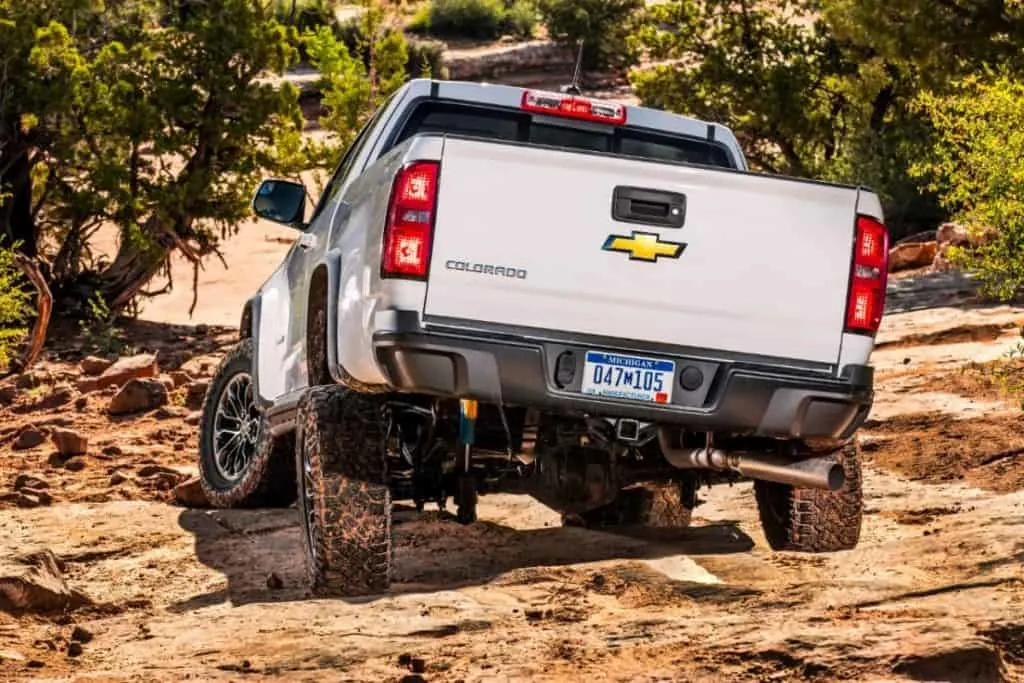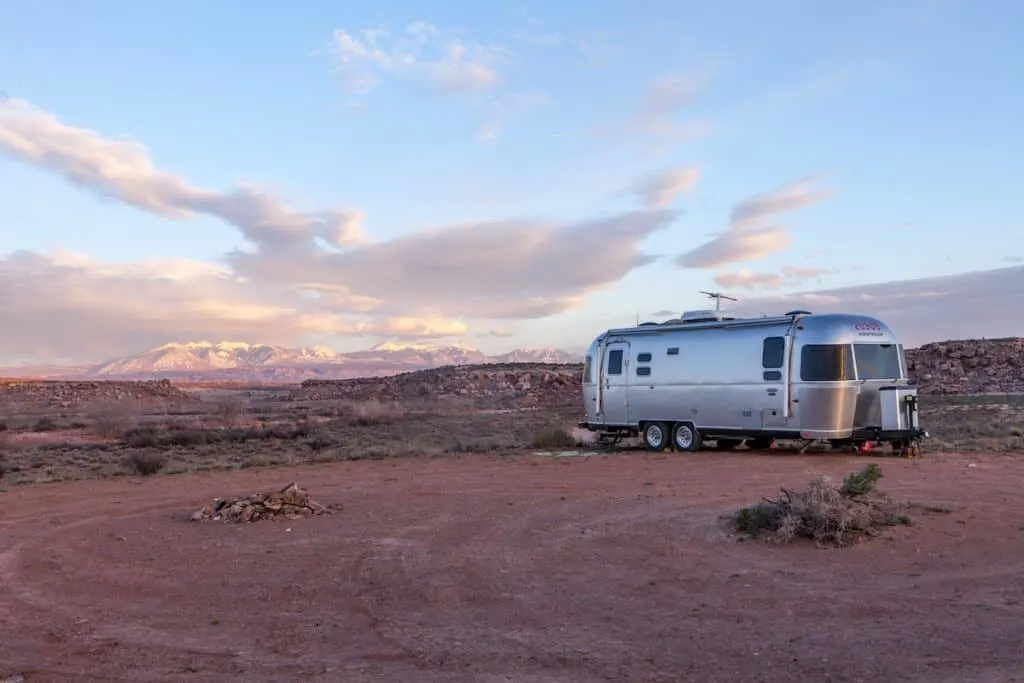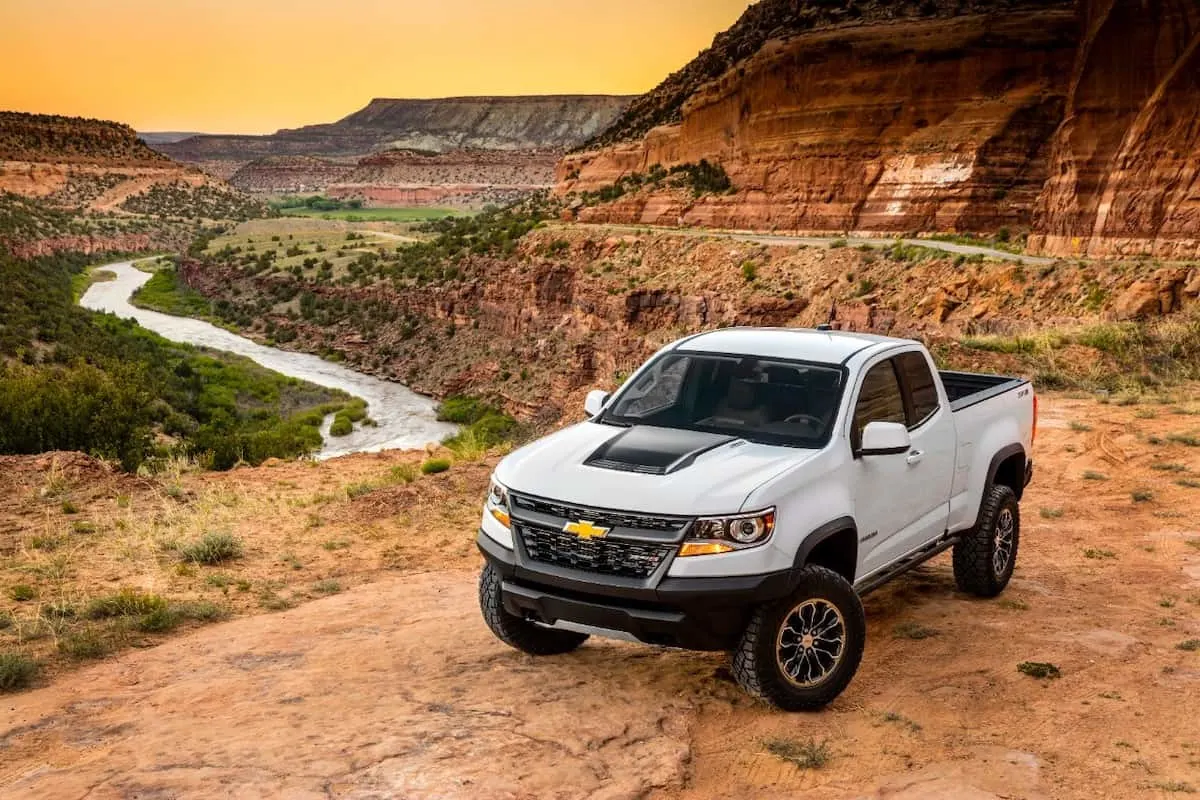Having an SUV can sometimes make you think that you can do anything you want because of their heavyweight and high towing capacity. But, can a Chevy Colorado pull a camper safely?
This will depend on which model you have because different years can vary, but for the most part, you will likely be able to handle pulling a camper with a Chevrolet Colorado. The average camper weighs around 5,000 pounds, and the range of Colorado’s towing capacities are between 3,500 to 7,000 pounds.
So, some models can, but others can’t or will have to choose a small-sized camper to be able to tow it. We will tell you how to find out if your Chevy Colorado has the capacity for a camper and how to tow it with your vehicle.
Towing Capacity of a Chevy Colorado

The towing capacity of each model Colorado is different but varies between 3,500 and 7,000 pounds, so you know that some models with be able to tow camper while others can’t.
So, what makes the difference between these models, and how do you know if your model is one that can handle that weight.
Well, older models often do not have as much of a towing capacity as the newest models. However, if you have a model that comes with four-wheel drive, then you might be able to reach a higher towing capacity than similar models.
However, focusing on the basic range, you will likely be able to tow a camper with most Colorado models because they can tow in between that range.
Since the 5,000-pound campers are within that range, many of the models will be able to handle that weight.
What To Consider When Towing a Camper

When you are planning on towing a camper on a family trip or vacation, you want to make sure to do it safely and take the right precautions before you head on your trip, or else you could end up on the side of the road.
You don’t want this to happen when on a vacation trip, so follow these guidelines to ensure your trip goes smoothly!
#1 Load Balance
Anytime you attempt to tow anything behind your vehicle, no matter what it is, you want to ensure that all of the items in your load are balanced correctly.
This will ensure that you won’t have a tough time driving on the streets or the highway, which can occur when one side is heavier than the other.
The load should include the camper and all items that are stored inside of it. You will want to make sure that it is well-balanced as much as possible and that all your things are secured so they don’t move while you are on the road.
This will ensure the safety of all your passengers and drivers around you, but will also make it easier to drive while towing all that extra weight. This is especially important for those who are not used to towing campers behind their vehicle.
#2 Gas in Your Tank
When thinking about the weight of your vehicle and the weight of the camper, you want to make sure that you take every little thing into account!
This means that you should count the weight of your vehicle with a full gas tank, and your camper if it requires fuel.
If you forget to think about this and get a camper that is very close to your towing capacity, then you might go over that limit by adding fuel to the camper’s tank. This might push it over the limit, which can damage your vehicle while you are driving.
So, before you decide to check the weight of each vehicle, you want to ensure that the tanks are full, or at least mostly full, so you can account for that added weight.
#3 Weight of Camper
The total weight of the camper, including the fuel, should stay around eighty percent of your total towing capacity. This ensures that you will have enough space and weight to add to your bags and suitcases for the trip without having to worry about going over the weight limit.
For some trips, you might only take a few fishes poles and clothes along with a few other small items. However, other times you might have large items like cooking equipment or coolers full of cold food and drinks.
This will add more weight than you might think, and you want to prepare to have quite a large number of things with you for the trip. If you only leave enough weight for a few things, you might end up leaving something important behind that you had intended to bring along.
Or, if you try to drive with all your items because it is not too far over the weight limit, you are risking damaging your Chevy Colorado engine and endangering your passengers and other people on the road.
Risks of Driving Over the Weight Limit
If you were thinking of driving while towing over the total weight limit of your Chevy Colorado, you will want to rethink that.
There are several serious risks involved that could ruin your trip or even cause a dangerous accident to occur.
So, here are just some of the major risks that you are putting yourself and your passengers through if you overload your vehicle.
Failing Brakes
The most serious thing that could happen when you are driving is the brakes on your vehicle failing. This could cause you to hit another car in front of you, or make you run yourself off the road to prevent causing a dangerous collision.
Having your brakes fail is not only a terrifying experience, but it is also extremely dangerous for all parties around you. This could possibly even end up with fatalities if the accident is very serious.
So, you do not want to overload your vehicle even a little bit because the consequences of that decision could be terrible for your family and others.
Difficulty Accelerating
When you have too much weight being towed behind your car, you will also have a hard time getting your engine to accelerate like normal. This is because the engine is working harder to pull your SUV and the weight of the camper along with it.
This can put a major strain on your engine and it could end up stopping on you. It could overheat and you might need to pull over on the side of the road to let it cool down before you can get back on the road.
This could lead to other issues along the way, so you don’t want to continue driving with that extra weight if your engine starts having any issues.
Trouble Steering Properly
Another issue that you will experience when towing past your vehicle’s limit is you will have trouble steering.
Having too much weight can affect your suspension and steering because the vehicle is not able to handle all that weight.
Because of this, the wheel might struggle to stay facing forward even with your hands on it. This could also result in an accident if you don’t take the weight off.
What is a Camper?
A camper is a recreational vehicle that usually contains sleeping areas, a dining area, a kitchen, and a restroom. This vehicle is commonly used for camping, which is how it got its name!
These campers are also called RVs, short for recreational vehicles, and come in a variety of different models from small campers with just a small caravan area for an individual to large options that can fit an entire family of people inside it.
There are some RVs that come with a driving area so they can be driven by themselves instead of getting towed behind another vehicle. There are also other options that don’t have a cockpit area and need to be towed to be moved.
An average size camper tends to be around 5,000 pounds without any added items in storage or any fuel in the gas tank. This should be a baseline for you to use, but the actual weight can be a bit more or less depending on the type of camper you choose to purchase.
Final Thoughts
If you have a Chevy Colorado, you will likely be able to handle the camper that you want to take with you on a camping trip, but you want to make sure that you have the towing capacity for that particular camper and the other items you will bring with you.
Although most Chevy Colorado models will be able to handle the weight of an average camper, you need to take the luggage and other items into account as added weight or else you could end up going over the weight limit of your vehicle without knowing it.
Luckily, if you take these tips and instructions seriously and make sure that you put all the tips to good use, you will be able to tow your camper behind your Colorado without any trouble so you and your friends or family can have a blast on your trip.
Recommended Reading
Before you go, make sure to also check out these other awesome truck-related resources!
